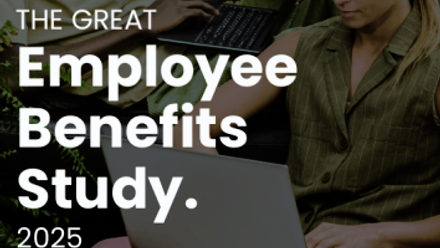Acting on fairness and inclusion: What should reward and benefits professionals be doing?

The ultra-conservatively-fiscal International Monetary Fund amazed almost everyone by recommending in April that governments introduce a temporary increase in taxes on wealth or high incomes to help tackle inequalities, which have widened globally due to the crisis, and to create a stronger sense of social cohesion. President Biden, it is reported, will shortly be following their advice to help to fund his huge Build Back Better programme of investment in infrastructure and social and human capital.
What can reward professionals do to reflect this growing emphasis in society, employment and reward management on fairness and inclusion?
Director of the London School of Economics, Minouche Shafik, argues in her new book that the pandemic has highlighted that in our “living on your own societies” the social contract between government, employers and individuals has broken down, with often the weakest and poorest bearing the most risk and cost. The book is called What we Owe Each Other and her answer is ‘more’.
Her old boss at the Bank Of England, Mark Carney, agrees and describes in his new tome, Values, the vital importance of addressing growing inequality. The pandemic he believes has shown those values to be those of ‘solidarity, fairness and responsibility’. It’s enough to make any employer who has moved staff onto zero hours or self-employed contracts, reduced pension benefits and overseen their executive pay differentials escalate, feel at least partly culpable, and rightly so.
Reward and benefits professionals are at last however, listening to these concerns. REBA’s comprehensive annual Employee Wellbeing research highlights that, as Debi O’Donovan puts it: “A key theme to emerge is inclusion, an area REBA explored for the first time this year. While a small number of employers have a strong lens on inclusion across their wellbeing programmes, this year’s report shows there will be a widespread increased focus during 2021 and beyond.”
Almost two thirds (63%) of the 279 participants listed improving inclusivity as a ‘key priority’ for their reward and wellbeing strategies, topping the list of key issues to address.
However, HR can often fail to put policy into practice and to ‘practice what we preach’ – an inconsistency highlighted for example by the Black Lives Matter movement.
Just 31% of employers with anti-discrimination policies have actually analysed how equitably the pay of their white and non-white employees compares, despite 130,000 signatories rapidly being secured to a parliamentary petition in favour of compulsory reporting on this after George Floyd’s murder last year. And even fewer employers have actually acted to close the pay gaps between them.
“Companies are pledging a lot...[but there’s] less follow through,” according to Martin Whittaker, Just Capital’s chief executive.
So what can we practically do in reward and benefits to further move towards fairer and more inclusive employment?
Practical changes
Here are my three practical and immediate suggestions that you can act on to move towards fairer and more inclusive, responsible rewards and benefits.
1. Review your reward strategy goals, priorities and values and the extent to which they are being delivered on at the moment. The simple framework of questions contained in my Rewards after the Pandemic white paper is designed to help you, your colleagues, your employees, your leaders and your Rem Co to assess how well you are currently delivering on this important area of perceived reward fairness and inclusion.
Also you can watch this recent webinar for a broader discussion of redefining your reward strategy to reflect the new realties post-pandemic, and place a stronger emphasis on inclusion.
2. Get your annual gender pay gap report done and published. Government figures revealed that fewer than one in four had reported their gender pay gap findings by April 2021 (the original deadline). I urge employers not to wait until the revised deadline of September, but get the data submitted and continue work to reduce the gaps. See the additional guidance we have produced at CIPD on why this is so important and how to deal with all the complexity of furloughing etc.
Then, if your gap has, as in many employers, not continued to reduce but even widened during the pandemic, as part of your action plan for removing gaps, consider introducing salary history discussion bans in your recruitment activity as things pick up and you start rehiring and bringing back furloughed employees.
These bans have been mandated in a number of US states and the research evidence so far is extremely positive – they help to work against the impact of market premia in male-dominated jobs and contribute to the reduction of both employer and national gaps. Just continuing to run unconscious bias training for another year is not going to cut it unfortunately.
A university I have been working with found their use was also popular with hiring managers, who were often uncomfortable in trying to apply any discretion they have in recruitment salaries and awarding market supplements on a fair and consistent basis.
3. Extend your pay gap analysis, reporting and action to ethnicity. Black Lives Matter and the evidence of growing pay and wealth differentials have highlighted the need for government and employers to act in revealing the scale of these gaps and taking steps to close them. The government has still to respond to the parliamentary petition demanding that this also be made compulsory, which rapidly gathered over 130,000 signatures after George Floyd’s death last Summer.
Caroline Nokes MP, Chair of the House of Commons’ Women and Equalities Committee, said when publishing their devastating report on the extent of this inequality in December: "The coronavirus pandemic has sharpened the focus on pre-existing inequalities for BAME people across a range of policy areas. With the possibility of a vaccine and the end in sight, now is the time to tackle these inequalities.”
The CIPD has already published a wealth of guidance and tools on developing a race equality and inclusion strategy and my specific and detailed guidance on ethnicity pay reporting will be published shortly.
In his Easter Sermon, the Archbishop of Canterbury outlined the personal and professional choices we all face now. The archbishop said: ‘In this country, in this world, we have a choice over the next few years: We can go on as before Covid, where the most powerful and the richest gain and so many fall behind. Or we can choose a better future for all.’
The Church will shortly be introducing its own version of the so-called Rooney rule, whereby there has to be at least one ethnic minority person on the shortlist of candidates for every senior appointment.
These are three simple things you can do to start on this latter, better journey in your vitally important reward and benefits work.
The author is Dr Duncan Brown, independent rewards adviser and researcher, and visiting Prof University of Greenwich.






